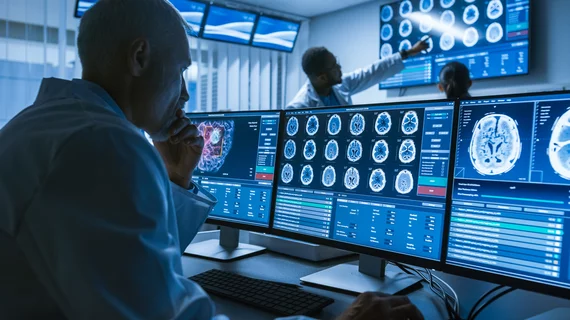Blood test could help cut back on head CTs in patients with blunt trauma
The number of head CT scans completed during concussion evaluations in emergency departments could soon be affected by a blood test newly approved by the U.S. Food and Drug Administration.
In early April, Abbott Laboratories announced the approval of its its i-STAT TBI cartridge, which can help determine whether a patient has a concussion in as little as 15 minutes using only a small blood sample.
Concussions vary widely in their severity, and the triage process often involves multiple steps. When patients meet certain criteria that would indicate they might have a brain bleed—vomiting, confusion, seizures, symptoms that worsen—they are often sent for a CT of their head to assess for bleeding.
This is common practice in many emergency departments’ concussion protocols, though it isn’t all that often that they reveal any sort of intracranial bleeding. One 2020 study analyzed the findings of all head CT scans completed after blunt head trauma at a single level 1 trauma center for an entire year and found that just a small percentage were positive for a bleed—8.5% out of 5,634.
The Centers for Disease Control and Prevention estimates that there are more than 200,000 TBI-related hospitalizations every year, and even more visits from patients seeking care for head injuries.
Given the subjective nature of diagnosing concussions, it can be difficult to make the call on whether a patient needs imaging, but many doctors err on the side of caution. Abbot says that their new test can address this concern at bedside, helping providers to quickly and more accurately determine the need for CT scans in patients with head trauma.
“With the help of this whole blood test, we can quickly and objectively determine whether or not a patient needs a CT scan or additional evaluation, right at the point of care,” Geoffrey Manley, MD, PhD, Chief of Neurosurgery at Zuckerberg San Francisco General Hospital and contact principal investigator for the TRACK-TBI Network, said in the announcement. “It's an incredibly helpful tool that advances the treatment of traumatic brain injury."
The test can be used for up to 24 hours after an injury occurs and is approved for anyone with suspected concussion 18 years and older.

